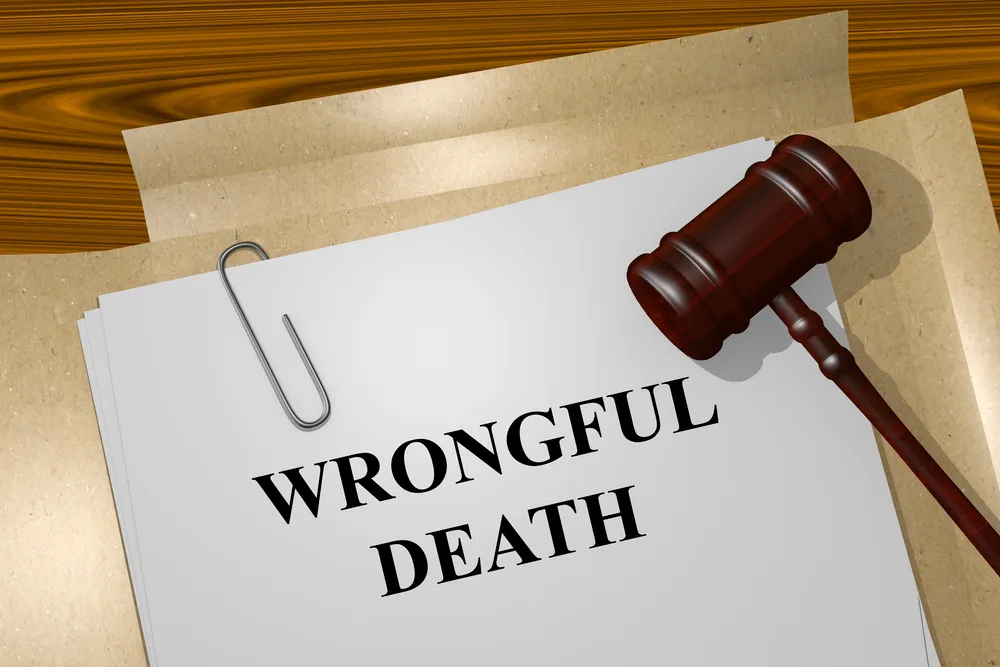Losing a loved one in a car accident is a devastating experience. The emotional toll is often compounded by financial stress and legal complexities. Filing a wrongful death claim after a car accident is one of the few ways to seek accountability for your loss.

In Texas, you may have the right to file a wrongful death claim. This legal action seeks compensation for the loss caused by another’s negligence or misconduct.
Whether you’re a spouse, child, parent, or legal guardian, this guide can help you navigate the complexities of Texas wrongful death law. It covers everything from the definition of a wrongful death claim to the role of a personal injury attorney in fighting for compensation for your family’s loss.
Understanding Wrongful Death Claims
A wrongful death lawsuit is a legal action brought when another’s negligence or misconduct causes a person’s death. It’s a civil lawsuit, separate from any criminal charges that might also be filed.
The purpose of a wrongful death claim is to seek compensation for the financial and emotional losses suffered by the deceased’s family. Damages can include lost wages, medical expenses, funeral costs, and loss of companionship.
In Texas, a wrongful death claim can be filed by the deceased’s spouse, children, or parents. If these individuals do not file a claim within three months of the death, a personal representative of the deceased’s estate may do so. It’s important to consult with a knowledgeable Houston car accident lawyer to navigate the complexities of such claims and ensure your rights are protected.
It’s important to note that a wrongful death claim is subject to a statute of limitations. In Texas, this is typically two years from the date of death.
Consulting a Houston wrongful death attorney can help you navigate the legal process and seek the compensation you deserve.
What is a Texas Wrongful Death Claim?

A wrongful death claim is a legal action that seeks compensation for the death of a person caused by another’s negligence or misconduct. It’s a civil lawsuit, not a criminal one. The deceased’s family or representative files the claim. The claim seeks to recover damages for lost income, medical costs, funeral expenses, and emotional suffering.
In essence, a wrongful death claim provides a legal avenue for families to seek justice and financial relief after the loss of a loved one.
How Does a Wrongful Death Claim Differ from Other Personal Injury Claims?
A wrongful death claim is a type of personal injury claim. However, it differs significantly.
In a typical personal injury claim, the injured person seeks compensation for their losses. But in a wrongful death claim, the family or representative of the deceased seeks compensation for the losses resulting from the death.
This distinction is crucial. It affects who can file the claim, what damages can be sought, and how the legal process unfolds.
Legal Grounds for Filing in Texas
In Texas, a wrongful death claim can be filed if the “wrongful act, neglect, carelessness, unskillfulness, or default” of one party causes the death of another. Negligence is the primary legal basis for filing a wrongful death claim.
The claimant must prove that the defendant’s negligence or misconduct directly resulted in the death. Proving negligence involves establishing a duty of care, a breach of that duty, causation, and damages. In a car accident case, negligence can be speeding, running a stop sign, or failing to yield the right-of-way.
It’s also important to note that Texas follows a modified comparative negligence rule. Comparative fault means that the compensation may be reduced proportionally if the deceased was partially at fault for the accident.
Understanding these legal grounds is crucial for building a strong wrongful death case in Texas.
The Statute of Limitations in Texas
The statute of limitations is the legal time limit for filing a wrongful death claim. In Texas, this is generally two years from the crash date.
It’s crucial to file within this time frame. You may lose your right to seek compensation if you miss the deadline.
Who Can File a Wrongful Death Claim in Texas?
In Texas, the right to file a wrongful death claim is limited to certain family members. They include the deceased’s spouse, children, and parents.
If these individuals do not file a claim within three months of the death, the personal representative or executor of the deceased’s estate may file the claim.
However, if a family member requests no claim be filed, the representative cannot proceed with the claim on their behalf. Understanding who can file a wrongful death claim in Texas is key to initiating a wrongful death claim.
The Claims Process
Filing a wrongful death claim involves several steps. The process begins with a thorough investigation of the fatal accident. The wrongful death claim process is followed by gathering evidence to prove negligence and liability.
It’s important to note that each wrongful death case is unique. The process may vary depending on the specifics of the case. However, understanding the general process can provide a roadmap for what to expect.
Investigating the Fatal Car Accident
The first step in a wrongful death claim is investigating the fatal accident. Investigation involves collecting all relevant information about the incident.
Evidence may include police reports, witness statements, and medical records. Photos or videos from the accident scene can also be crucial.
The goal is to establish a clear picture of what happened. This information will be vital in proving negligence and liability.
Proving Negligence and Liability
Once the investigation is complete, the next step is proving negligence and liability. Proving the case is a critical part of a wrongful death claim.
To prove negligence, you must show that the defendant had a duty of care, breached that duty, and that the breach caused the death.
Proving liability can be complex. It often requires the expertise of a personal injury attorney.
After a fatal car accident, your wrongful death lawyer uses evidence obtained in the crash investigation to prove fault for causing the wreck. Some of the proof used to win a wrongful death car accident case can include:
- Witness testimony
- Event data recorders
- Accident reconstruction experts
- Police officer’s factual observations and reports
- Autopsies doctor’s account
- Toxicologist testing (if the driver was drunk)
Wrongful Death Damages and Compensation in Texas
In a wrongful death claim, the goal is to seek compensation for damages. These damages can be both economic and non-economic. They aim to cover the financial and emotional losses caused by the death.
The amount of compensation awarded can vary. It depends on the specifics of the case. Factors such as the deceased’s income, age, and the impact of their loss on the family are considered.
It’s important to note that compensation is not guaranteed. Success in a wrongful death claim depends on proving negligence and liability.
Types of Damages in a Wrongful Death Case
There are several types of damages in a wrongful death case. Economic damages cover financial losses, such as lost wages, medical expenses, and funeral costs.
Non-economic damages cover emotional losses.
These can include pain and suffering, loss of companionship, and mental anguish.
In some cases, punitive damages may also be awarded. These are meant to punish the defendant for gross negligence or willful misconduct.
Distribution of Compensation to Beneficiaries
Once compensation is awarded, it must be distributed to the wrongful death beneficiaries who brought the case. These are typically the deceased’s spouse, children, or parents in Texas.
The distribution of compensation can be complex. It often depends on the specifics of the case and the deceased’s will if one exists.
It’s important to consult with a personal injury attorney. They can help navigate the distribution process and ensure all beneficiaries receive their fair share.
Seeking Legal Assistance
Filing a wrongful death claim can be complex. It involves navigating legal processes and dealing with insurance companies. The right legal assistance becomes crucial and increases your chances of winning a wrongful death suit.
A personal injury attorney can provide valuable guidance. They can help gather evidence, prove negligence, and negotiate with insurance adjusters.
Remember, the goal is to secure fair compensation. An experienced attorney can increase the chances of achieving this.
The Role of a Personal Injury Attorney
A personal injury attorney plays a vital role in a wrongful death claim. They understand the legalities involved and can guide you through the process.
Their tasks include investigating the accident, gathering evidence, and proving negligence. They also handle negotiations with insurance companies and defense attorneys.
In essence, they represent your interests. They fight to ensure you receive the compensation you deserve.
The Importance of Timely Legal Consultation
Consulting with an attorney as soon as possible is crucial. The statute of limitations in Texas is two years. You have a limited time to file a claim in Texas.
An early consultation allows for a thorough investigation. It also helps preserve crucial evidence that may be lost over time.
Remember, time is of the essence. The sooner you consult with an attorney, the better your chances of a successful claim are.
Get Help Filing a Wrongful Death Claim After a Car Accident
Filing a wrongful death claim after a car accident is a complex process. It requires understanding Texas law, proving negligence, and navigating legal procedures.
However, securing fair compensation with the right legal assistance is possible.
Baumgartner Law Firm has protected the rights of families who have lost a loved one for over 35 years. We offer a free consultation. Call us at (281) 587-1111.
